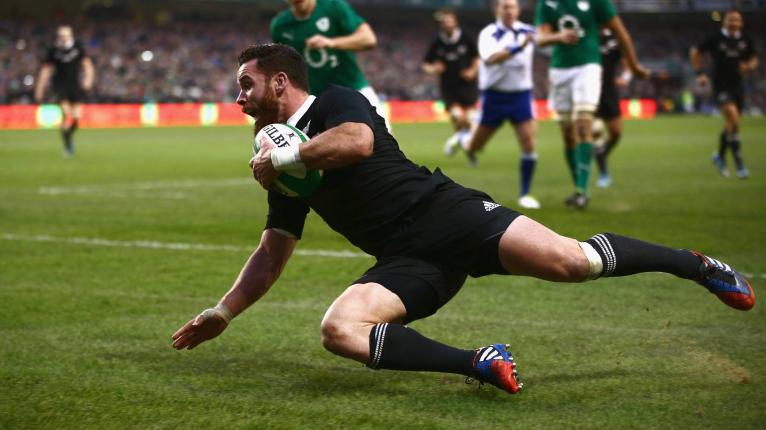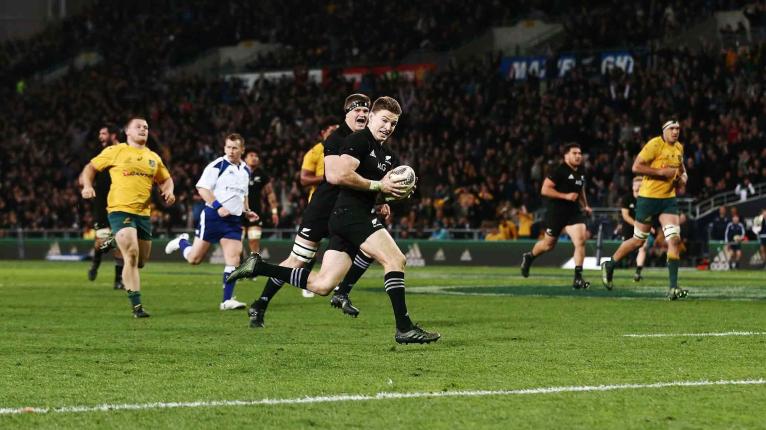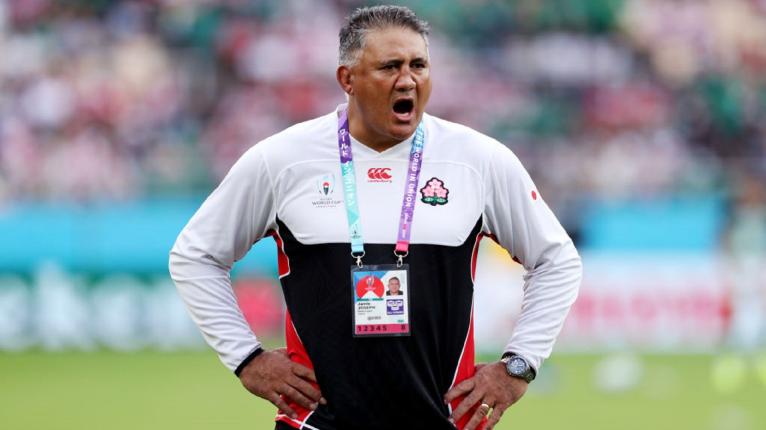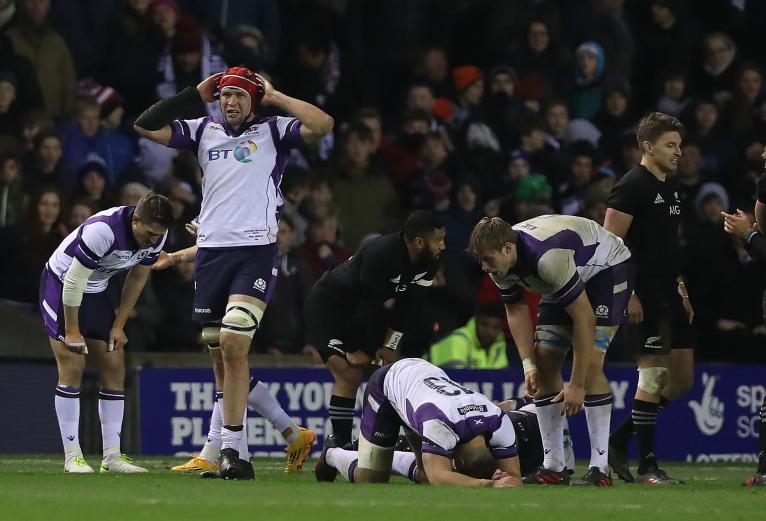There was a time, and it wasn’t that long ago, that the All Blacks really did have an aura. When Richie McCaw was the captain and Dan Carter was wearing the No 10 jersey, that was usually enough to make most teams uncertain about their chances of winning when they played the All Blacks.
When that same team had Ma’a Nonu and Conrad Smith in the midfield, Sam Whitelock and Brodie Retallick in the second row and Jerome Kaino and Kieran Read joining McCaw in the back row, there was a genuine fear factor about playing the All Blacks.
Teams would do their analysis and battle to see any kind of weakness that they could exploit. They would look at the results achieved by the All Blacks and wonder what, if any chance they really had to win. It was hardly any wonder; between 2012 and 2015 the All Blacks lost only three Tests and became the first side to win successive World Cups.
They were mostly imperious in that period but what helped them build their aura more was the way they were at times able to scrape their way out of a tight hole.
Who could ever forget the way they saved the test against Ireland in 2013? They were five points behind, there were 30 seconds left and Ireland had the ball. How on earth were they going to get out of that?

And yet they did. They won a penalty inside their own half, and then somehow kept the ball alive through 13 phases to score and then convert. Only the All Blacks.
Just as it was only the All Blacks who could find a way to win in Auckland against England the following year, when the game at Eden Park appeared destined to be drawn until Aaron Cruden tapped a penalty inside his own 22 and a try was conjured from nothing.
In Brisbane later that year later the All Blacks were two tries down with 10 minutes left and yet Colin Slade kicked a winning conversion after the hooter.
This was how the All Blacks were. They could find ways to win games that they had no right winning, and these miracle escapes hardened this sense they were unbeatable or that it would take an almost super-human effort to beat them.
And it is probably true that plenty of teams, even the heavyweights, headed into matches against the All Blacks a little intimidated and overawed long before kick-off. They have a legacy, a story, a history… whatever you want to call it that says they are a bit special – inherently gifted, resilient and capable of doing the almost impossible.
I used to have this thing about their invincibility in my head. I always looked on the All Blacks as the best team in the world, so you automatically assume that they have the best players from 1 to 15.
Joe Marler during England’s tour of NZ in 2014
Naturally, this idea has been challenged over the years. Not everyone buys into it and frequently someone out of the blue will spark up – be it player or journalist – insisting that the All Blacks don’t have this aura about them.
The list of people who have made this claim about the All Blacks is long and even illustrious. In 2009, former England lock Paul Ackford, writing in The Telegraph, said: “The All Blacks seem to have lost their aura of invincibility. They now seem bereft of ideas.”
It was a sentiment that Warren Gatland repeated later that same year before his Wales side faced the All Blacks.
In 2014, after the All Blacks had scraped home at Eden Park in the first of the three-test series, England prop Joe Marler said: “I used to have this thing about their invincibility in my head. I always looked on the All Blacks as the best team in the world, so you automatically assume that they have the best players from 1 to 15.
“That is how I used to think of it as a player. But when you break it down, they are 15 blokes on a field trying to do the same as we are.”

Since then David Campese has said it many times that the All Blacks have no aura left and last year the subject came up when Wallabies outside back Andrew Kellaway gave his view that New Zealand didn’t hold the fear factor of old.
But for all that these deniers and doubters have pushed back and said the aura is not real, the statistics have said otherwise.
The All Blacks win ratio in the professional era is in excess of 80 per cent and they have won three World Cups, the Rugby Championship nine of the 11 times it has been played and have held the Bledisloe since 2003.
All those who say the aura is fading don’t have a lot of evidence to back it up. Until now.
The latest person to delve into this issue was Japan coach Jamie Joseph just a few days ago. Joseph, a former All Black, was speaking after his side had rattled New Zealand in Tokyo.
Having played for the All Blacks, one of the things we used to talk about 25 years ago was that everyone was a wee bit scared of us. Perhaps that’s not the case anymore.
Jamie Joseph following Japan’s narrow loss to the All Blacks
Japan, still seen as not quite top-tier opposition despite having made the quarter-finals of the last World Cup, had genuinely targeted the test at the National Stadium as one they could win.
And they came mightily close, being edged out 38-31. But they had their chances to win and so after the test, Joseph said: “Everyone is thinking about the All Blacks, and that’s part of their armour, really.
“Having played for the All Blacks, one of the things we used to talk about 25 years ago was that everyone was a wee bit scared of us. Perhaps that’s not the case anymore, I’m not sure.
“We shut their lineout down, shut their maul down, but it still wasn’t enough and that sort of tells you how good the All Blacks are as a team.”
“They key for us really is to go to England now and replicate that performance against a better team.”

All Blacks coach Ian Foster dismissed the comments as mischievous, said Japan were a fast-improving team and that the All Blacks were rusty and not at full strength.
There was truth to Foster’s response, but Joseph had made the more compelling argument and perhaps for the first time, this idea that the All Blacks have lost their aura has finally come true.
Maybe Joseph can’t be dismissed as another wishful thinker – another defeated coach or chastened player who has lashed out at the All Blacks.
That’s because the All Blacks in results and performances since 2020 are seemingly lacking something.
Too many unwanted records have been amassed since the last World Cup. There have been historic defeats to Argentina, Ireland won a series in New Zealand, the All Blacks lost three consecutive Tests at home for the first time in history this year and scraping past Japan feels like just another reason to believe New Zealand are now as beatable as everyone else.
The worry for New Zealanders is that two countries who have long gone weak at the knees when the All Blacks are in town may be quietly confident at facing them this November.
The rugby smarts of old don’t appear to be embedded into the All Blacks the way they once were, and they have looked decidedly human in the last three years.
Since Foster took over, the All Blacks have played 31 tests and lost nine times. When Steve Hansen was the coach, the All Blacks lost just one test in his first 31 in charge, with one draw being the only other blemish. The All Blacks lost only 10 times in his whole eight-year tenure, and he finished with an 88 per cent win ratio.
Foster currently sits on a 69 per cent success rate but it’s the general shakiness, obvious vulnerability and inconsistency of the team that has damaged the reputation of the All Blacks as miracle men who are superhuman and capable of psychologically haunting their opponents.
And now the worry for New Zealanders is that two countries who have long gone weak at the knees when the All Blacks are in town may be quietly confident at facing them this November.
Wales haven’t beaten New Zealand since the 1950s, and while they have come close in recent times, they seem like a country that buys into the All Blacks aura harder than most.

There’s long been this feeling inside the All Blacks that Wales have too much respect for them and burden themselves with too much pressure whenever the two meet.
The bottom line is that Wales lack the belief to beat the All Blacks. But will that be the case in 2022, a year in which the All Blacks have lost twice to Ireland, once to South Africa and once to the Pumas, a year in which the All Blacks have had to fire their assistant coaches and a year in which they came perilously close to firing Foster?
What have the All Blacks done in 2022 to make anyone scared of them? To compound matters, they have arrived in Cardiff without captain Sam Cane, who broke his cheekbone against Japan and without Dane Coles, who popped a calf in the warm-up.
There is no Will Jordan either and probably no Brodie Retallick, who is waiting for a judicial hearing to decide his suspension fate after being sent off against Japan.
It’s an All Blacks side low in confidence, low in experience and one that hasn’t done enough to scare Wales.
A week after they leave Cardiff, the All Blacks are off to Edinburgh, where they have never lost. Scotland are the only traditional top-tier nation who have never beaten the All Blacks and whatever level of intimidation the Welsh have felt at seeing those black jerseys, it has been much greater north of the border.
But the Scots will know that they came within one try the last time the All Blacks were in Edinburgh five years ago and that this may be their best chance in a long, long time to finally realise that New Zealand are as beatable as everyone else.
The aura is indeed slipping and that’s why former All Blacks assistant coach Robbie Deans, now based in Japan, told Stuff that the world order is changing.
Asked if he could see a time when Japan would beat the All Blacks, he was unequivocal: “When you look at the trajectory of the game and the improvements in the game, you’d have to say ‘yes’. Having witnessed (Saturday), it (Japan beating the All Blacks) is going to happen.
“No one wants to be wearing the (black) jersey on that occasion obviously, so New Zealand will try and keep that at arm’s length for as long as they can.”


Unfair to lay this all at the feet of Ian Foster.
I've long believed that the cracks began to show during Hansen's second tenure first against Ireland, then the BI Lions, the loss in Wellington to SA and narrow win in the return match, last minute victory against the Wallabies in Dunedin, narrow victory against England and then the failed 2019 campaign.
The northern unions particularly gained a lot of confidence after the drawn Lions series and knew they could squeeze our famed attack.
Where Foster has fallen short is devising a new strategy to take this team forward instead of just incrementally changing what Hansen did previously.
Ultimately this is NZRU's failure as well, believing in the value of internal promotion for the sake of continuity instead of being bold and striking out on a different path.
Covid has also been a bigger impact on the southern hemisphere teams than first thought compared to the north. Ironically SA has emerged stronger due to many of their top players already signed to European clubs and then forced to find a new competition after NZRU disbanded Super rugby.
There's an old saying, "iron sharpens iron" and unfortunately we're now in a less than ideal position where our top competition comes from the Brumbies in Australia and other Kiwi teams. Improving and developing skills on attack and defence against fellow Kiwi teams can breed a false sense of superiority and ability, where its very much playing same of the same.
That's a fair call under the incompetence of both the current coaching team and NZRFU. It's amazing how fast the team has fallen as this coach has allowed the culture to deteriorate and we now have players who care more about themselves than the jersey and don't respect the opposition.